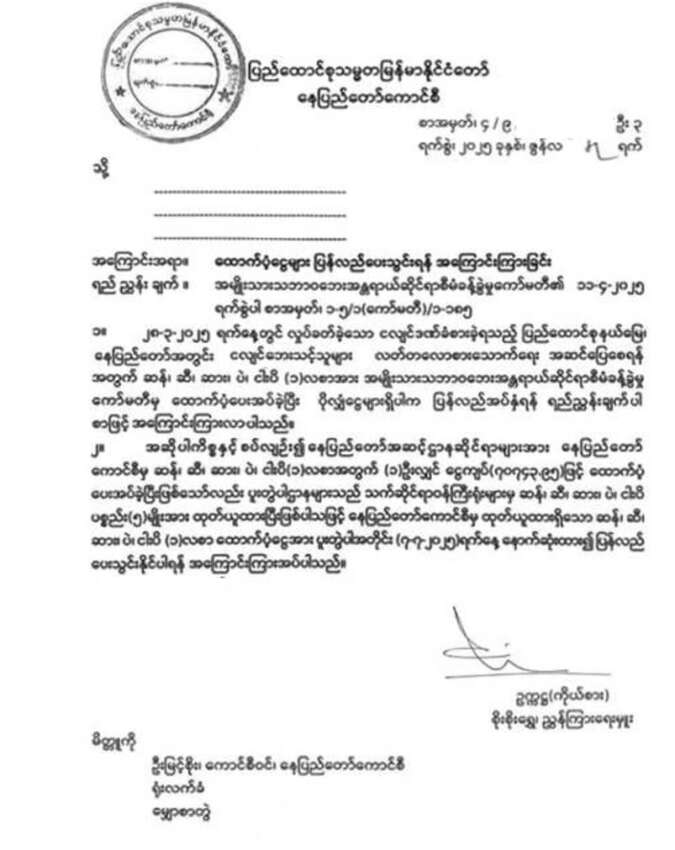
The military council is demanding the return of earthquake relief funds amounting to over 70,000 kyats per person from nearly 10,000 non-CDM civil servants working across 32 departments in various ministries in Naypyidaw. The military council had previously provided support for basic food items including rice, oil, salt, beans, and fish paste, valued at 70,743 kyats per person as a one-month allowance. However, this support was mistakenly distributed twice – once by the Naypyidaw Council and once by the respective ministries.
Due to this double distribution, civil servants are now being ordered to return 70,743 kyats each to the military council. A total of 9,402 civil servants must return these funds by July 7. This demand comes at a particularly difficult time, as many civil servants have suffered significant losses to their homes and possessions due to recent earthquake damage, making it extremely challenging for them to return the requested amount.
While departments with opportunities for corruption such as the Ministry of Home Affairs, Police Force, and General Administration Department have staff who can manage to return the funds, employees from departments with limited income sources such as Myanmar Railways, Religious Affairs and Rural Development Department, Fire Services Department, Agricultural Mechanization Department, and Health and Sports Department are finding it impossible to comply with this demand. The situation is particularly dire as regular salaries are already insufficient, forcing many civil servants to practice extreme financial austerity.
In response to earthquake damage to civil servant housing in Naypyidaw, the military council has provided temporary container housing. However, these temporary accommodations lack basic amenities such as electricity, proper toilets, and water supply systems, creating severe hardships for the affected civil servants. The demand for returning relief funds adds an additional burden to civil servants who are already struggling with inadequate living conditions and limited financial resources. This situation highlights the continuing challenges faced by civil servants under the military council’s administration, particularly in the aftermath of natural disasters when support is most needed.



